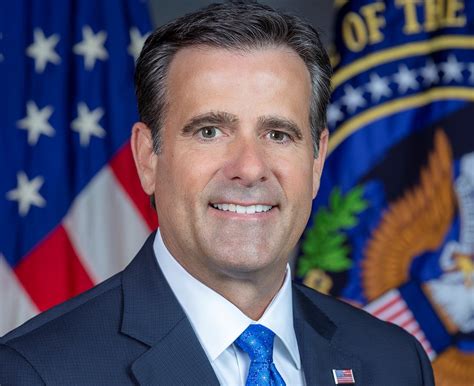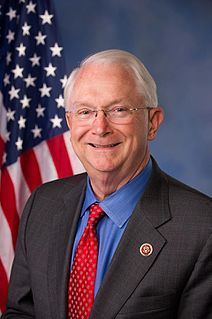Top 1200 Ethical Behavior Quotes & Sayings - Page 5
Explore popular Ethical Behavior quotes.
Last updated on April 20, 2025.
We live in a world full of accidents finally in which on aesthetic principles have a consistency of which we can be sure. Right and wrong we will struggle with forever striving to create and maintain an ethical balance. Right and wrong we will struggle with forever, striving to create and maintain an ethical balance; but the shimmer of summer rain under the street lamps or the great flashing glare of artillery against a night sky – such brutal beauty is beyond dispute.
Here is my challenge. Name one ethical statement made, or one ethical action performed, by a believer that could not have been uttered or done by a nonbeliever. And here is my second challenge. Can any reader think of a wicked statement made, or an evil action performed, precisely because of religious faith? The second question is easy to answer, is it not? The first - I have been asking it for some time - awaits a convincing reply. By what right, then, do the faithful assume this irritating mantle of righteousness? They have as much to apologize for as to explain.
I think the part of media that romanticizes criminal behavior, things that a person will say against women, profanity, being gangster, having multiple children with multiple men and women and not wanting to is prevalent. When you look at the majority of shows on television they placate that kind of behavior.
There's a floating distraction in the contemporary world, life at a distance enabled by technology. I want people to commit at the level of their subjectivity. The idea of subjective commitment is at the core of ethics, something that divides the self from itself. I become an ethical self. I cannot meet that ideal, I cannot fulfill it, it divides me from myself and it makes me strive harder. This ideal subjective ethical drive is at the heart of an absolutely earnest, radical politics that insists that people will be able to engage with each other, and they're lifted from irony at that point.
Pay attention to the voice within. . . . Sometimes the voice of your conscience gets drowned out by crowd noise or by the pep rally of temptations. And your mind may put some selfish spin on the ball, rationalizing that it's okay to veer away from the ethical route. When we run into conflicts between ethical "shoulds" and our selfish "wants," we all argure out ways to con our conscience. But take pains to listen, because it has your best interests at heart.
Don't go overboard in praising required behavior: 'We have only done our duty' (Luke 17:10). But do go overboard when your child confesses the truth, repents honestly, takes chances, and loves openly. Praise the developing character in your child as it emerges in active, loving, responsible behavior.
Laws against homosexual behavior should remain on the books, not to be indiscriminately enforced against anyone who happens to be caught violating them, but to be used when necessary to send a clear message that those who flagrantly violate society's regulation of sexual behavior cannot be permitted to remain as acceptable, equal citizens within that society.
Discipline isn't a dirty word. Far from it. Discipline is the one thing that separates us from chaos and anarchy. Discipline implies timing. It's the precursor to good behavior, and it never comes from bad behavior. People who associate discipline with punishment are wrong: with discipline, punishment is unnecessary.
Humans like to think of themselves as unusual. We've got big brains that make it possible for us to think, and we think that we have free will and that our behavior can't be described by some mechanistic set of theorems or ideas. But even in terms of much of our behavior, we really aren't very different from other animals.
The distinction between feelings or inclinations on the one hand, and behavior on the other hand, is very clear. It's no sin to have inclinations that if yielded to would produce behavior that would be a transgression. The sin is in yielding to temptation. Temptation is not unique. Even the Savior was tempted.
I am, I must confess, suspicious of those who denounce others for having too much sex. At what point does a healthy amount become too much? There are, of course, those who suffer because their desire for sex has become compulsive; in their case the drive (loneliness, guilt) is at fault, not the activity as such. When morality is discussed I invariably discover, halfway into the conversation, that what is meant are not the great ethical questions but the rather dreary business of sexual habit, which to my mind is an aesthetic rather than an ethical issue.
If you go out and have unprotected sex with lots of people, that behavior puts you at risk. Similarly, violent behavior can spread. One violent act can elicit a response. It can spread to people in a peer group so that they feel that they have to respond. It can pass generation to generation almost like a genetic disease.
I'm not saying that maybe there isn't a kid out there whose behavior hasn't been influenced by me in some way. I'm sure there is. But I can only speak for myself, and if you'd asked if my behavior had ever been affected by people I'd admired from afar, like musicians or footballers, that'd be a yes, totally. Right down to their hand gestures.
We will not make inroads into the gun-violence problem until we acknowledge the underlying causes of youth behavior today, compared to yesterday. ... we must come to the realization that laws and regulations alone cannot produce a civilized society. It's morality that is society's first line of defense against uncivilized behavior.
Policemen and laws can never replace customs, traditions and moral values as a means for regulating human behavior. At best, the police and criminal justice system are the last desperate line of defense for a civilized society. Our increased reliance on laws to regulate behavior is a measure of how uncivilized we’ve become.
We need to first clearly establish what our modern rules for behavior are and make sure those are clearly understood and communicated. That empowers both the people who experience harassment on any level, but also the people who are the perpetrators of harassment to absolutely understand what behavior is crossing the line.
My mother moved abroad when I was 11, my dad wasn't around from the time that I was a baby, so I was not the product of a family, but a product of observation - of watching what went on around me, of watching who I liked, what I didn't like, what I thought was good behavior and what I thought was bad behavior and tailoring myself accordingly.
I like aristocracy. I like the beauty of aristocracy. I like the hierarchical feeling.You could claim that it's due to my military experience. But it came before that. I love their freedom of behavior. They're not constrained by penal attitudes, puritanical attitudes about behavior, both socially and morally. They have a freedom that I admire. An unquestioned freedom.
It no longer makes sense to speak of "feeding problems" or "sleep problems" or "negative behavior" is if they were distinct categories, but to speak of "problems of development" and to search for the meaning of feeding and sleep disturbances or behavior disorders in the developmental phase which has produced them.
It's always fascinating to me, one, when they like to throw President [Bill] Clinton's behavior in Secretary [Hillary] Clinton's face, I've never seen anything like it before in my entire career, of watching a woman have to defend the behavior of her husband, because she chose to make her marriage work. That is just outrageous.
It's natural canine behavior to chew on all sorts of things, roll in other animals' droppings, hump and fight other dogs, menace anything that invades the home. All these behaviors can be curbed, but that takes a lot of work. Trainers say it requires nearly 2,000 repetitions of a behavior for a dog to completely absorb it.
Like the sorcerer of old, the television set casts its magic spell, freezing speech and action and turning the living into silent statues so long as the enchantment lasts. The primary danger of the television screen lies not so much in the behavior it produces as the behavior it prevents — the talks, the games, the family festivities and arguments.
Although homosexual behavior is very common in the animal world, it seems to be very uncommon that individual animals have a long-lasting predisposition to engage in such behavior to the exclusion of heterosexual activities. Thus, a homosexual orientation, if one can speak of such thing in animals, seems to be a rarity.
There's only one thing worse than not paying attention to girls in gangs - it's paying attention to girls in gangs. The public reaction to girls and women who engage in nontraditional behavior - the hysteria that often surrounds girls in these groups - is almost as interesting as the behavior itself.
Etiquette is about all of human social behavior. Behavior is regulated by law when etiquette breaks down or when the stakes are high - violations of life, limb, property and so on. Barring that, etiquette is a little social contract we make that we will restrain some of our more provocative impulses in return for living more or less harmoniously in a community.
Experience was of no ethical value. It was merely the name men gave to their mistakes. Moralists had, as a rule, regarded it as a mode of warning, had claimed for it a certain ethical efficacy in the formation of character, had praised it as something that taught us what to follow and showed us what to avoid. But there was no motive power in experience. It was as little of an active cause as conscience itself. All that it really demonstrated was that our future would be the same as our past, and that the sin we had done once, and with loathing, we would do many times, and with joy.
A cancer is not simply a lung cancer. It doesn't simply have a certain kind of appearance under the microscope or a certain behavior, but it also has a set of changes in the genes or in the molecules that modify gene behavior that allows us to categorize cancers in ways that is very useful in thinking about new ways to control cancer by prevention and treatment.
Courage is not an ability one either possess or lacks. Courage is the willingness to engage in a risk-taking behavior regardless of whether the consequences are unknown or possibly adverse. We are capable of courageous behavior provided we are willing to engage in it. Given that life offers few guarantees, all living requires risk-taking.
The thing about markets, and I think the thing people don't understand about that, is markets are not kind, but they're very efficient. So when the marketplace determines an inefficiency in the system, it corrects that, and a market system that's left alone will reward good behavior and punish bad behavior.
None of the three great apes is considered ancestral to modern man, Homo sapiens, but they remain the only other type of extant primate with which human beings share such close physical characteristics. From them we may learn much concerning the behavior of our earliest primate prototypes, because behavior, unlike bones, teeth, or tools, does not fossilize.
There’s a passage that I love in Romans 1. … [I]t talks about homosexuality and it says that they will receive in their bodies the penalties of their behavior. … The Bible [is] right every time … and that’s why AIDS has been something they haven’t discovered a cure for or a vaccine for. … And that goes to what God says, ‘Hey you’re going to bear in your body the consequences of this homosexual behavior.’
If you accept learning as a dominant determination of your behavior, then all of a sudden you're open to the idea that, for instance, there are other people who are more educated than you about the environment, who you will learn from. It's kind of like you don't even have to believe that you know anything about the environment, but you do have to understand that your behavior has been determined by learning in the past.
Sometimes people will hear you and be able to change their behavior, but often their behavior has more to do with their own need for approval than with your need for support. No matter what their response, you need to be firm and hold your ground. At the end of the day, your health is your responsibility.



























































